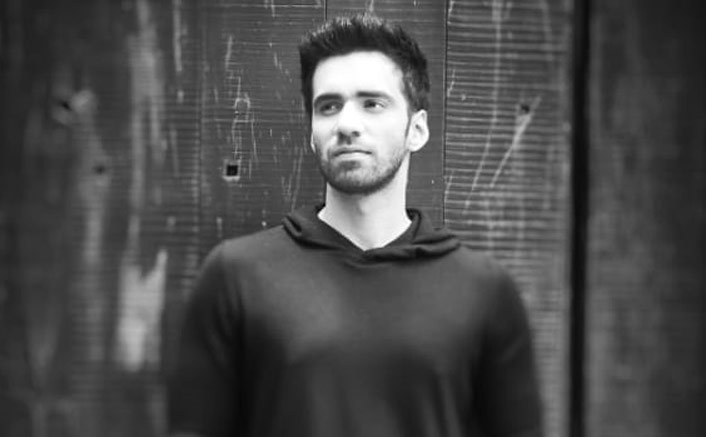He personifies patience and resilience. Though one got to see him in films recently, Avinash Tiwary has been acting since the last fifteen years. In all these years, he has done theatre, television and now, films. In this interview he talks about his long and eventful journey as an actor, why Laila Majnu could not reach out to a large number of people, common criticism against the film and what he plans to do next.
From 2003 to 2018, you have had a fifteen-year long journey as an actor – Tell us something about it.
I was around nineteen when I started doing theatre in 2003. At that point of time the idea was to do an acting job. I come from a conventional middle class family and it was difficult to convince my parents to let me pursue acting as a profession. I dropped out of engineering to follow my passion for acting. I thought even if I end up being a junior artist, I will be happy. At that time, a lot of new TV channels were being launched. I thought even in the worst case scenario, I will at least be able to make enough money to survive. That is what I told my parents. I joined Mr. Om Katare who is the founder of Yatri theatre group. From 2003 to 2005, I was with him. When you are in theatre, you look down upon films and television as you think theatre is the only pure form of art. I used to get Rs. 160 bucks a show which would not even pay one day of conveyance. We would have hardly five or six shows in a month. Sponsored shows would pay Rs 500 bucks. I realised it would be impossible for me to sustain myself by doing theatre. I thought of getting into films and started preparing for that. I went to Delhi and trained with Barry John and then did an advanced course in acting at New York Film Academy. During the break, I would see my fellow students watching videos on their phones. This was in 2005, way before smartphones arrived. I thought we could make some short videos and sell it to mobile network companies.

That is such a revolutionary thing to think about it in 2005.
Yes, I guess that is a problem in this profession (laughs). Even YouTube had not arrived by then. YouTube was launched towards the end of 2005 and got popular only a couple of years later. I had made quite a few short films in film school and wanted to make a few after coming back to India. But, I did not have the resources and did not know how to reach out to people. I wanted to do films but I had to sustain myself as well. I did a couple of television shows for Doordarshan like Bikhri Aas Nikhri Preet and Ek Aangan Ke Ho Gaye Do. I got to work with a legendary director like Mr. Lekh Tandon on these shows. He is the only person I have looked up to in the industry. I was very upset when he passed away last year. He was my guide throughout the time I worked with him. Because of the work I did on DD National I was able to earn my bread and butter. These shows were shot primarily in Delhi and Gujarat but since these were weekly shows half of the month I could be in Mumbai and shoot for ads and do theatre. I stayed away from doing shows on mainstream GEC channels as I wanted people to discover me when I act in films. I only did a couple of episodes in finite shows like Rishta.com and Special@10 on Sony. In 2014, Yudh happened. When I got to know that Mr Bachchan would be headlining the cast and I would be playing the antagonist, I thought this is the project that will give me the platform I was looking for all these years. As I was revealed to be the villain towards the end of the show, it was important to keep me away from the promotions. I thought after people watch the entire show, they will appreciate my work but unfortunately, the show never picked up and my work went largely unnoticed. My film debut finally happened with Tu Hai Mera Sunday, which is a film I am extremely proud of. I never looked at my journey as a struggle as I was constantly working in different mediums. My only aim is to be the best version of myself.
Your family is based in Mumbai and you had a roof over your head. When compares to most people who come from different parts of the country to Mumbai to become actors, it must have been relatively easier for you.
I had my fair share of struggle as well. I belong to a small village near the town of Gopalganj in Bihar. I was born in another town called Motihari in the same state. After six years, we moved to Mumbai and I grew up here. We were living in a government quarter. If things had not worked out for me, we would have to go back to our hometown. When I started acting, things got a little difficult. When I was training with Barry John in Delhi, I was living in a tiny room which had no fan or windows. I used to share the room with Aditya Kumar who played the role of Perpendicular in Gangs Of Wasseypur 2. I have worked as a waiter while studying in New York. I had a scholarship which lessened the burden of paying the fees but I still had to pay my bills. Despite all the hardships I went through there, I think that was the best part of my life. I thought I have gone through the worst and can easily face what life has to offer me next. The most important thing is what you say no to. That is what builds your character and defines who you really are. Aap raja honge par main bhi naukar nahin hoon. An actor should be humble and arrogant in equal measure.
Laila Majnu took a lot of time to happen. I think you auditioned for the film in 2016.
I met Sajid towards the end of 2015. In 2016, I auditioned for the role and after a while, I received a confirmation from the team that I have been finalised for the film. Interestingly, somebody else was finalised for Laila’s part at that point of time. Had the film been made then, Tripti would not have been a part of it. Later, they were looking for a replacement for the role and thankfully, found Tripti.
Trending
How was the first meeting with Sajid Ali like? Had you seen his first film, the unreleased ‘Banana’ before you met him?
No, I had heard about the film but not seen it. The first time I met him, instead of talking about the film, we spoke about international politics for two hours. I realised if I can speak to somebody for that long in the very first meeting, I will definitely get along well with him. I felt Sajid had the sensitivity and the right sensibility to pull off a film like Laila Majnu. I found him to be a very open-minded person who was willing to listen to contrasting views and not someone who would force his opinion on others.
You are quite the method actor. You camped in the woods for several days to get into the skin of your character.
I think method acting is the most abused term. There are things you just have to do as an actor. You have to get to a specific point mentally and physically to play certain characters. My training for Ajatshatru, the character I played in Yudh was to watch Mohammed Ali videos. When somebody hears that it does not make any sense to him as I was not playing a boxer in the show but there is a definitive reason behind that. You must do everything you are required to do to deliver the performance.
You shot for the film backwards. You lost weight to portray the eccentric Majnu and then, shot your portions as Kaes.
Yes, that is true. Sajid had imagined Kaes to be a herculean man. I built up muscles but we realised it was not working out for the character. We were seventeen or eighteen days away from the shoot then, so we did not have much time. I cut down on my food intake to lose weight. It was not the right thing to do as my health got affected by it but I guess that was a price I had to pay to portray the character effectively. We shot Majnu’s portions first as I had lost a lot of weight for it. Then, I gained weight and groomed myself properly to play the suave man Kaes was.
When I watched the film, I was a little disappointed with the fact that it did not explore the socio-political climate of Kashmir. What are your thoughts on that?
When you look at Kashmir from an outsider, you associate it with militancy and terrorism but when you spend some time there, you will realise that it is much different from what you had imagined it to be. When you meet the youth, you realise they are not bothered about politics. They are thinking about getting jobs and are upset with the fact that there is no theatre over there. They are dealing with their day-to-day problems. I was there for four months and attended several cultural functions which the locales invited me for. The film was not talking about Kashmir’s politics. Now, you could ask me why was the film based in Kashmir then? Was it because it has scenic locations? No. Fortunately or unfortunately, Kashmir is a place which is stuck in time and that is one of the things which makes it beautiful. Which was the last film set I Kashmir which was not about militancy? The people in Kashmir must be very happy to see that finally there is a film which celebrates the place and does not talk about politics, guns and terrorism.
Another criticism against the film was that Kaes’ transition from being sane and normal to being an eccentric person did not come across as seamless.
Even my father pointed this out to me. Some people might have wondered why Laila and Kaes do not meet even when all the problems in their lives have been resolved. Even when Laila’s husband dies and there is nobody between them, they do not meet. I do not have a logical answer to this as this is exactly how the original story is. If you observe clearly, by the time Kaes comes back from London, he is already a different person. There is something that is already going on in his head. There is a constant shift in his behaviour from the second half. It is the wait that starts making him restless. He starts finding a way to deal with this endless wait. He creates this world where the two of them are together and happy. The mechanism he uses to fix the problem is what leads him towards his doom. Maybe, we should have done something different to make it more comprehensible to the average audience but personally, I am very satisfied with the way things shaped up.
People talked about similarities with Rockstar. Even Imtiaz Ali had remarked that Majnu is similar to Jordan/Janardhan – Ranbir Kapoor’s character from the film.
Both of them have a similar angst towards the society. The difference between Jordan and Majnu is that Jordan got stuck and could not leave the society. I think Mr. Imtiaz Ali went a step ahead and made this character which does not give a damn about the society and renounces it. He is a true rebel in that sense.
Laila Majnu recently released on a digital streaming platform and is getting a lot of love there. In hindsight, why, do you think, the film failed to reach out to many people when it released in theatres?
I heard a lot of people say a lot of things. Some people even said naming the film Rockstar 2 would have been a good idea. I guess I will never know the exact reason why people did not come to the theatres to watch it. There was a lot of angst within me which I thought will go out after the release of the film. But, I feel angrier now. Out of the number of people who have watched the film, at least eight-five per cent would have liked it. So, that is a good percentage you have got there. But, the number of people watching the film was so less that it was disheartening. I also feel that as an actor and a part of the team of the film, I could not generate the curiosity amongst people to watch the film. I need to learn how to do that.
What are you doing next?
I have read seven scripts that came to me recently. I have liked two of them. They are at a very early stage. Films will always be my first preference but I am open to doing web shows as well. I do not want to do television as it is a little restrictive. I enjoyed working on finite shows like Yudh but I do not think that kind of content is going to be made on television again.



 Follow Us
Follow Us




![Alappuzha Gymkhana Box Office Day 8: Needs To Earn 14.52 Crore More To Beat Khalid Rahman’s Debut Profit [Despite 196% Higher Collection!] Alappuzha Gymkhana Box Office Day 8: Needs To Earn 14.52 Crore More To Beat Khalid Rahman's Debut Profit!](https://www.koimoi.com/wp-content/new-galleries/2025/04/alappuzha-gymkhana-box-office-day-8-needs-to-earn-14-52-crore-more-to-beat-khalid-rahmans-debut-profit-despite-196-higher-collection-324x160.jpg)


